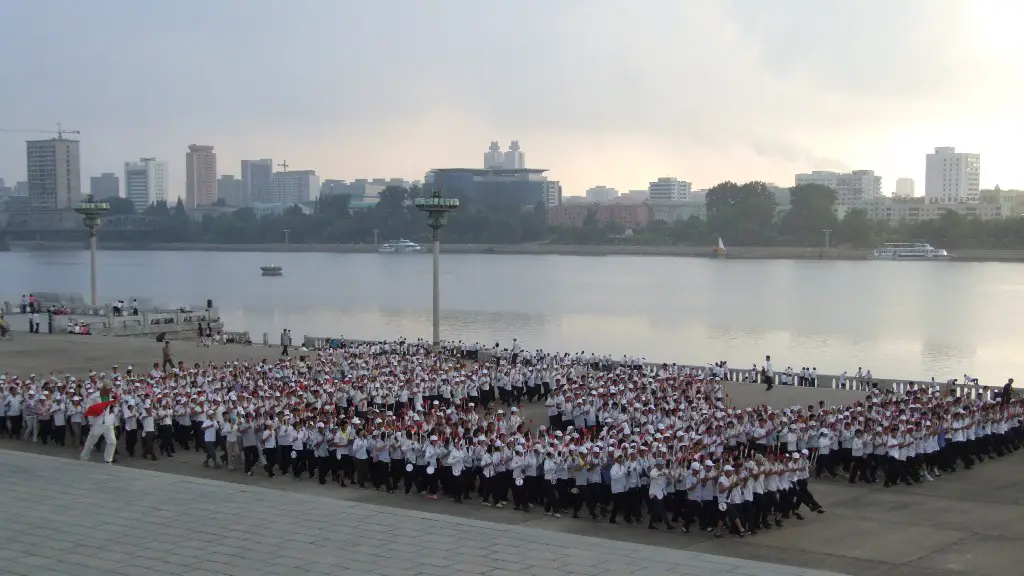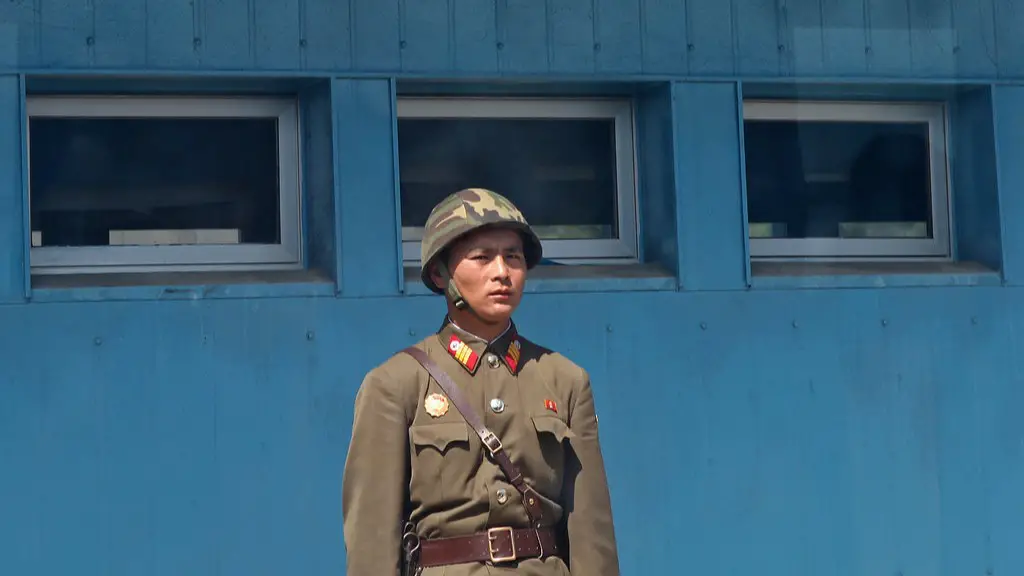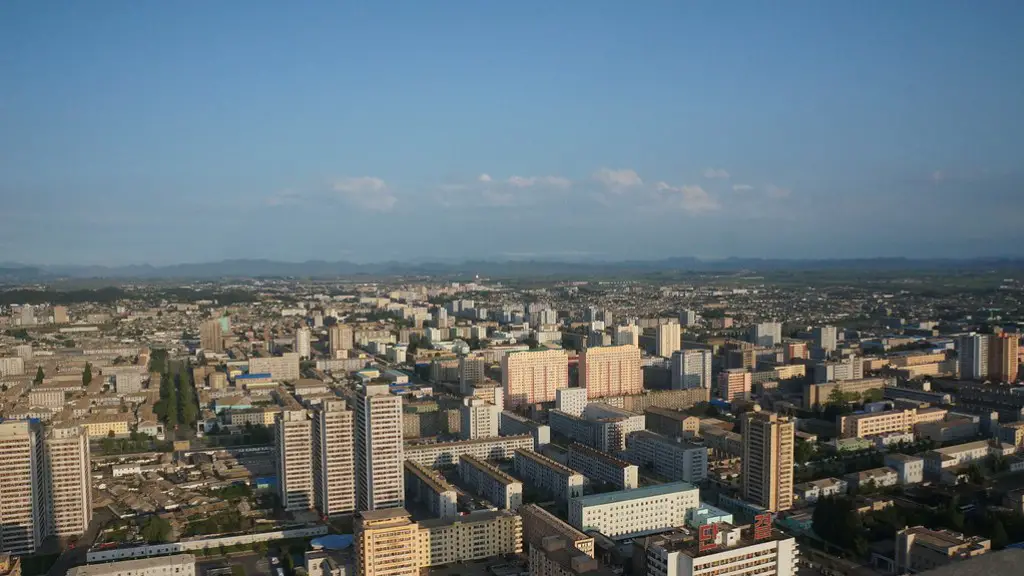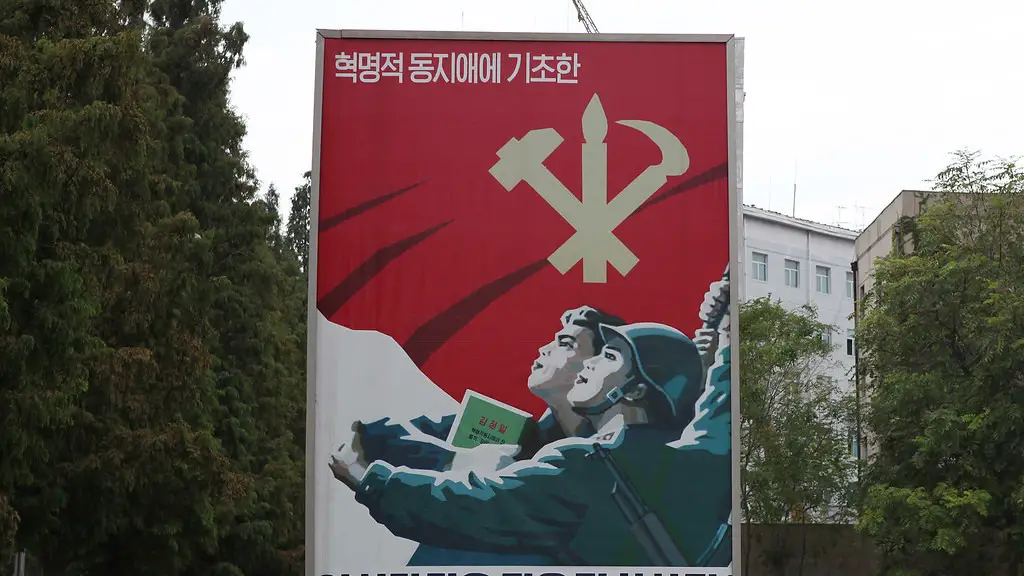History of North Korea’s Nuclear Weapons Program
North Korea’s nuclear weapons program dates back to the mid-1960s under Kim Il Sung, with the official goal of creating a nuclear arsenal to serve as a deterrent against foreign aggression. To this end, North Korea maintained close ties with a number of countries during the Cold War, including China and the Soviet Union, which provided nuclear research know-how and equipment. But it was not until the late 1980s and early 1990s that the program began to take shape, with the establishment of a nuclear research facility in Yongbyon, near the capital of Pyongyang.
By this time, North Korea had begun to acquire the materials necessary for building nuclear weapons, mainly through illicit purchases on the international market. North Korea continued to develop its nuclear weapons capability throughout the 1990s and 2000s, test-firing several ballistic missiles and conducting its first nuclear test in 2006. Since then, North Korea has conducted a total of five nuclear tests and several missile tests.
What Types of Nuclear Weapons Does North Korea Have?
North Korea is believed to have an array of nuclear weapons, including plutonium-based and uranium-based bombs and hydrogen bombs. The exact details of its arsenal are unknown due to the country’s secrecy, but it is likely that the bombs are relatively crude compared to those of the United States or Russia. In addition, there is growing evidence that North Korea has acquired the capability to mount nuclear warheads on ballistic missiles, thus expanding its range of delivery options.
The most recent estimates suggest that North Korea could have between 20 and 30 nuclear weapons, enough to cause significant destruction in the region if used. It is also believed that the country has the capability to produce two or three warheads a year, though the details are difficult to verify given the country’s opacity.
North Korea’s Pursuit of Nuclear Weapons
North Korea’s pursuit of nuclear weapons has been driven by a desire to increase its military superiority vis-à-vis its neighbors. The country’s leaders have long seen the possession of nuclear weapons as a way to secure their hold on power, greatly increasing their leverage in regional confrontations. In addition, North Korea has long sought to use its nuclear arsenal as a bargaining chip to extract concessions from the international community.
In the past, North Korea has sought to use its nuclear program as a means of gaining economic benefits from the international community, such as the lifting of economic sanctions or the provision of economic aid. It has also sought to use its nuclear program to increase its diplomatic standing in the world, by seeking to build direct relationships with major powers such as the United States, China, and Russia.
North Korea’s Nuclear Doctrine
North Korea has never publicly declared its nuclear doctrine, but experts believe that it is based on the country’s “self-defense” strategy of maintaining a powerful nuclear deterrent. It also appears that North Korea aims to create a “viability” threshold whereby other states in the region, particularly the United States and South Korea, would be deterred from taking military action against it without triggering a massive nuclear retaliation.
At the same time, North Korea has also made clear that its nuclear weapons are not up for negotiation. It has repeatedly rejected proposals that would require it to abandon its nuclear arsenal and instead emphasized its “sovereign right” to possess nuclear weapons. As such, there is little prospect of North Korea agreeing to a deal that would impose limits on its nuclear program any time soon.
International Response To North Korea’s Nuclear Program
The international community has reacted to North Korea’s nuclear program with a mixture of concern, condemnation, and sanctions. The United Nations has passed multiple resolutions condemning the country’s nuclear program and imposing sanctions on North Korean entities and individuals suspected of assisting the program. In addition, the United States and its allies have adopted a policy of “maximum pressure” against North Korea, imposing additional sanctions and attempting to limit the country’s access to foreign currency and materials that could be used in its nuclear program.
At the same time, China and Russia have sought to maintain ties with North Korea while attempting to persuade it to abandon its nuclear program. Both countries have supported UN sanctions, while also providing economic and diplomatic support to the country. This has led to an uneasy balance between the two countries, but both have sought to prevent a major confrontation and have worked to prop up the country’s regime.
Implications Of North Korea’s Nuclear Program
North Korea’s nuclear program has had a major impact on regional security, decreasing the prospects for a peaceful resolution to the conflict on the Korean peninsula. The possibility of a nuclear strike from North Korea has had a major deterrent effect on the United States and its allies, as well as on China and Russia, and has also emboldened the leadership in Pyongyang to take actions that might have previously been unthinkable.
Meanwhile, the international community has been unable to come up with an effective strategy to deal with the threat posed by North Korea’s nuclear program. Sanctions and diplomatic efforts have had limited success at persuading the country to abandon its nuclear weapons and there is little appetite among the major powers for a military intervention. As such, the country’s nuclear arsenal appears to be here to stay.
North Korea’s Nuclear Ambitions
In recent years, North Korea has intensified its rhetoric about the need to improve its nuclear weapons capabilities, vowing to keep developing the weapons even in the face of international sanctions and disapproval. North Korean leader Kim Jong Un has declared the pursuit of a “strong and prosperous” nuclear arsenal to be one of the country’s top priorities, though it is unclear what his ultimate goals are.
Experts believe that North Korea is unlikely to give up its nuclear weapons, given the perceived benefits they offer to the regime. But at the same time, the country is unlikely to risk a nuclear confrontation, given the potentially catastrophic consequences if it were to use such weapons. As such, North Korea is likely to remain a nuclear power for the foreseeable future.
International Cooperation
In order to address the threat posed by North Korea’s nuclear program, the international community must work together to find a peaceful resolution. While major powers such as the US and China have sought to use economic incentives and sanctions to try to persuade the North Korean regime to abandon its nuclear ambitions, these efforts have failed to produce tangible results so far.
In the absence of progress, the international community must find a way to build trust and confidence between the parties involved in order to create a framework for dialogue and negotiation. This will require a concerted effort by all parties involved and a commitment to build sustainable peace on the Korean peninsula.
Conclusion
North Korea’s nuclear weapons program is a major international issue and a potential threat to regional and global security. The country possesses an array of nuclear weapons and has expressed the ambition to increase its capabilities further, thus creating the risk of a deadly confrontation. In order to address the threat posed by North Korea, the international community must work together to find a peaceful resolution through dialogue, trust-building, and cooperation.




